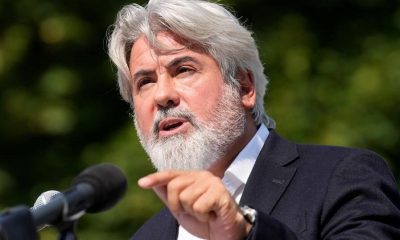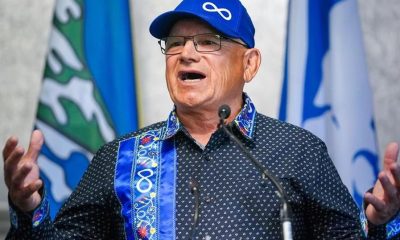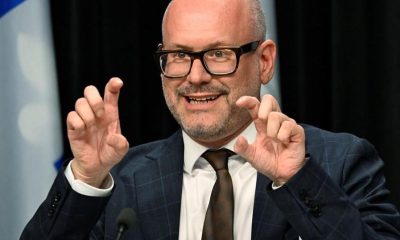He’s by no means throwing in the towel in the fight against a proposed privatization of Torstar Corp., but one of Canada’s top securities lawyers said he was disappointed by the reception he received from Ontario Securities Commission regulators last week.
Joseph Groia, a Toronto-based securities lawyer and former OSC director of enforcement who currently represents two of the newspaper publisher’s aggrieved shareholders, told BNN Bloomberg he was dismayed by the reaction in that meeting after presenting his view on how the sale suffers from a lack of disclosure that could hurt Torstar’s minority shareholders ahead of a vote scheduled for Tuesday.
“We outlined for them the concerns of a number of Torstar shareholders and it’s fair to say the commission’s reaction is that we could either go to court or perhaps do something on our own,” Groia said in an interview with BNN Bloomberg Monday.
“On behalf of all investors in Canadian capital markets, that’s a very disappointing reaction from Canada’s leading securities regulator.”
Groia’s comments come amid multiple letters to the regulator from stakeholders who are urging it to intervene in the sale of the 128-year-old publisher to Nordstar Capital Inc., with a former senior Torstar executive and the head of the Ontario New Democratic Party among the latest to chime in.
NordStar, a firm led by businessman Jordan Bitove, former Fairfax Financial Holdings Ltd. president Paul Rivett and former Ontario premier David Peterson, raised its offer for Torstar to 74 cents per share earlier this month from the previous offer of 63 cents per share after another proposal surfaced.
That rival approach came from Canadian Modern Media Holdings Inc., a firm led by Avesdo chief executive officer Tyler Proud, and valued Torstar at 80 cents per share as well as an additional 50 cents per share from contingency payments tied to future asset sales.
While Nordstar’s sweetened bid won the backing of a Fairfax subsidiary as well as trustees of the Torstar Voting Trust, some of the newspaper chain’s investors were upset that the rival unsolicited option was left on the sidelines.
Ontario NDP leader Andrea Horvath said the OSC should hold a hearing to consider whether the rights of minority investors have been respected and protected in the proposed sale, she wrote in a letter to OSC chair Grant Vingoe that was obtained by BNN Bloomberg.
“A hearing would bring transparency to the process and would help to ensure that the rights of minority investors are fully respected and protected. As you know, Torstar has a unique ownership structure, which leaves these minority investors particularly vulnerable,” Horvath wrote in the letter.
An OSC spokesperson said Monday that a hearing would only take place if the regulator’s Office of the Secretary issues a notice for one to be held.
Patrick Collins, a former Torstar executive vice-president, said in a letter submitted to the OSC on July 17 that Fairfax’s actions have “shaken my trust in the financial oversight in Canada as the self-dealing and abuse of power is there for all to see.” Fairfax owns approximately 40 per cent of Torstar, according to Bloomberg data. Collins told BNN Bloomberg that he owns approximately 1.1 million shares in the company.
His complaint centres on Rivett’s association with the NordStar group, which came shortly after he stepped down from his role as a senior Fairfax executive where he was the financial service firm’s “point person” for Torstar’s sale process, initiated by the publisher’s board in September 2019, according to a management circular.
“I don’t know if Fairfax or Torstar shareholders should be the most outraged by this self-dealing,” wrote Collins in his complaint to the OSC. “Mr. Rivett had a fiduciary responsibility to Fairfax shareholders and by working with Mr. Bitove he placed his interests ahead of the shareholders who trusted him to look after their interests with the full consent of Prem Watsa.”
Collins added that Torstar’s shareholders “have the right to know the truth and not be railroaded into a sale of their shares at a significant discount to their value.”
“There is nothing about this deal that passes the smell test and the OSC should use its powers to do right by all shareholders,” he said.
Bitove said in an email to BNN Bloomberg that “NordStar is looking forward to a bright future as the owner of Torstar. We are confident of the process that has gotten us here.” A spokesperson for Nordstar did not make Rivett available for comment.
Peterson told BNN Bloomberg on Friday that the NordStar bid “has been totally transparent.”
A representative from Fairfax wasn’t immediately available to comment on Collins’ complaint to the OSC.
After Tuesday’s vote, Groia said investors may have one final opportunity to express their concerns about the sale during a hearing Thursday at the Ontario Superior Court where a judge will decide whether or not to approve the deal.
“I hope a court at least is going to be asked to take a good hard look to see how solid [NordStar’s] offer was and how Torstar handed it when it came in,” Groia said.
Let’s block ads! (Why?)

Source link
Related






























